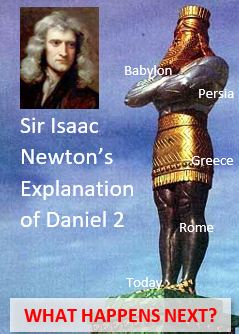Why is there something instead of nothing? If there is a God, why is there so much suffering?
Disclaimer: What follows is a brief consideration of questions that have been debated by philosophers and theologians for millennia. We make no pretense of having complete water-tight answers to these.
Why does God exist?
"We sense that it is rightful that a good God should exist. Perhaps that is cause enough!"
We submit the following for consideration: It is rightful that a perfect God - a God perfect in wisdom, perfect in power, perfect in love - exist. We sense the reason for God's existence when we gaze into the wonders of space, when we examine the delicate perfection of a flower, and when we observe the love of a mother for her child - an overwhelming sense of the infinite love and perfection of a God, who if He didn't exist, He sure ought to. Could this be reason enough for God's existence? Hold on - we know this all sounds extremely emotional in our modern age! It is not the cold, calculating kind of reason we generally look for when answering philosophical questions. But can cold, calculating reason ever touch the primary cause of existence itself? There is good cause to suspect that such questions may forever be beyond the reach of reason alone - that by their very nature, finite logic and observation, left to themselves, must always be utterly unable to sufficiently answer the questions pertaining to the foundational cause for existence. But must we then be left forever clueless? The Bible teaches that God created us in His image, and as such, we believe that it is possible for us to understand these things - if but only in a small way - through the spiritual enlightenment of God's Spirit which can do what our neurons, on their own, are utterly incapable of. Here, finite reason must bow low. We sense that it is rightful that a good God should exist. Perhaps that is cause enough!
Why couldn't the universe self-exist?
Even if we were to grant that physical laws alone can account for the existence of the universe, we are still left with the question, "Where did the physical laws come from?"
We believe it is no mistake that humans have a deep spiritual thirst that can only be satisfied with truth and purpose, and that this thirst is, in itself, an argument in favor of the existence of something greater than the material stuff of the universe. To say the universe is all that exists with no God and no underlying purpose would be a reality devoid of any meaning beyond the often antagonistic purposes we invent for ourselves. Some regard it as their purpose to do what they can to maximize the pleasure stimuli of living things around the globe. Others regard it as their purpose to destroy or to dominate those who have a different worldview than their own. Still others regard it as their purpose to do whatever gives them pleasure, irrespective of the consequences to others. Some suggest that the universe is advancing through evolutionary processes to produce increasingly more and more advanced creatures and civilizations, and believe they find meaning and satisfaction in this. We find that we cannot do so, however. Evolutionary processes are brutal and heartless, by definition, and it is special pleading to suppose that these would ever create a congenial universe. Merely knowing that the universe is mechanically marching towards increasingly more and more advanced progeny can provide but little spiritual satisfaction. Certainly, it would be very difficult to argue that it would be rightful for such a universe to exist!
It could still be argued that there is no moral cause for the universe, but that it simply exists because physical laws exist. However, even if we were to grant that physical laws alone can account for the existence of the universe, we are still left with the question, "Where did the physical laws come from?" Humanity's incessant and universal quest for the Divine is not a matter deserving to be summarily dismissed.
 Mercury, Venus, and the Moon
Mercury, Venus, and the MoonBy ESO/Y. Beletsky - http://www.eso.org/public/images/potw1025a/, CC BY 4.0, Link
So, if God is perfect, why do we live in an imperfect universe? Did a perfect God create imperfection?
God created the universe perfect. God did not create imperfection, or sin. Jesus said that he saw Satan fall like lightning from heaven (Luke 10:18). John the Revelator describes Satan as being "cast out into the earth" with his angels (Revelation 12:9). Isaiah calls the king of Babylon "shining one" or "Venus", and described him as having desired to exalt his throne "above the stars of God" and to "be like the most high" but who was instead "cut down to the ground [or earth]" and who will be "brought down to hell" (Isaiah 14:12-15). These words have long been understood by many to be a comparison of the king of Babylon to Satan. Ezekiel, in what was clearly symbolic language, called the king of Tyre "the anointed cherub" who was "upon the holy mountain of God" and who was created perfect in his wisdom, beauty, and his ways, until iniquity was found in him. Like the words to the king of Babylon, he would be cast down to the ground (Ezekiel 28:12-15). While there has been disparity in thought over the ages as to what these verses mean, the connection to the teachings of Jesus and to the Apocalypse (the book of Revelation) is unmistakable, which we take to be evidence in favor of this view.
From the foregoing, it appears from the Bible that sin originated with this "shining one", "lucifer" (the familiar designation from the Latin Vulgate translation), or "heylel" in the original Hebrew. Lucifer was created perfect. But God gave him, and the holy angels, the power of choice, just like He has given humans the power of choice. We can choose to live in harmony with God's love and wisdom, or we can choose to live in opposition to God and do whatever we please. Lucifer, and the angels who followed him, chose the latter, and he was transformed from an angel of light to Satan, the prince of darkness, the adversary of good and instigator of evil, to whom the human race surrendered the lordship of this planet (Genesis 1:28, John 12:31).
If God knew this would happen, why did He give us the power of choice?
Due to the very nature of love, to love or not to love must be a choice. If God programmed humans - and angels - to do what is right, we would be incapable of love. We would be mere automatons and wouldn't be able to have a relationship with God rooted in love. God wanted to be able to share Himself with creatures that could reciprocate His love. For this reason, sharing His love with robots would never satisfy, just as getting kudos from a video game is not the same for us as getting a "high-five" from a friend.
So, why couldn't God have just chosen not to make Lucifer? Why didn't He avoid creating him, and only create those who He knew would freely choose to do what is right?
Free choice is a mystery. Lucifer didn't fall because he was given an inferior spirit. God doesn't pull spirits out of a hat and give to one this spirit and to another that spirit. God breathes the same spirit of life into each of His creatures. We are the ones who choose who we are going to be.
(Note: It is popular these days for secularists to argue that free choice is an illusion. Such a conclusion is devastating to our sense of personhood and of personal accountability, nor is it necessitated by scientific observation. True, we cannot explain how free choice operates. This is humbling to the human mind that has been conditioned to believe that it should be able to figure out anything given enough time and information. When discussing free choice, we may well be dealing with a spiritual dimension of existence that goes beyond that which can be comprehended by the neurons of the brain or encapsulated in the rhetoric of logic, and hence, we may probably never comprehend free choice on a purely intellectual level. But we sense that we have freedom of choice - that we have something to do with our decisions, and that our decisions are not merely the innescapable result of the 3 laws of Newton being played out in the brain. We suggest that this sense is not an illusion, but rather that it is a spiritual discernment of a spiritual fact that is integral to giving meaning to our existence, to our personhood, and to our sense of personal accountability.)
Why didn't God simply destroy Lucifer when he sinned, rather than let him cause all these years of suffering and woe?
Of course, God could have done so. But let's suppose that He did. In the early stages of Lucifer's sin, his rebellion was not understood to be the rebellion that it actually was. If God had then destroyed Lucifer, it would have been very difficult for the angels to understand God's justice in doing so. Many angels would likely rebel, suspecting that God just destroys whomever He pleases, and those who continued to serve God would likely do so out of fear rather than love. In order for the universe to understand the true nature of sin, God had to let the rebellion take its course. Never were the true colors of the rebellion more fully revealed than when it nailed the Creator of the universe to the cross. Satan has made a number of accusations against God. It is to counteract these accusations so that the universe may be one day placed on a secure footing that God is presently allowing sin to take its course. The Bible reveals that this time is drawing to a close.
If God is infinitely intelligent, why couldn't He have found a better way?
Let's consider the prayer of Jesus in the Garden of Gethsemane, the night before His crucifixion. Jesus prayed that if it were possible, God would not require Him to drink from the cup (the cup representing the woe of the crucifixion and the sense of the withdrawal of the Father's presence). If God could have found a better way to save us and could have spared Christ from the cross, no doubt He would have done so. Infinite wisdom found no better way because there was none.
We will not belabor pointless disputes as to whether God can make a rock so big He can't pick it up, or whether He could turn the number 3 into an even number. But we will suggest that simply due to the nature of reality, when God began His creation, He had only two choices: either He could create beings with free choice, despite the risk involved, or He could choose not to.
So, why did God decide to go ahead and create beings with the power of choice, when He foreknew all the misery, suffering and woe that would happen as a result? Wouldn't it have been better for Him to not have created anything at all?
We offer the following, not as a complete answer, but for consideration:
God is not insensitive to the suffering of His creatures. He feels it all as though it is happening to Himself. Not even a sparrow falls to the ground without His notice and empathy (Luke 12:6). When we consider this, God is suffering much more than any of His creatures because He feels all of it! Nowhere did God experience this suffering more keenly than on the cross, when Jesus bore the accumulated guilt and condemnation of the entire world as though He Himself had been responsible. As we come to understand what the cross really means, we have utterly no reason to suppose that God takes our suffering lightly, even though much of our suffering may be the result of our own choices. God doesn't even take the suffering of those who will be ultimately lost lightly, even though the gift of salvation was freely offered to them and they rejected it. God is all-knowing, and arguably, all-feeling. God feels our suffering even more deeply than we do ourselves.
"As we come to understand what the cross really means, we have utterly no reason to suppose that God takes our suffering lightly."
When the war between God and Satan is over, Biblical evidence suggests that the universe will be forever free from the possibility of sin arising again because all of God's creation will know the horrible consequences of it. The eternal joy and fellowship of love between God and His people will so far outweigh the momentary suffering that we experience today that our former suffering will seem unworthy of mention. God knew us even before He created us, and He loved us. It was because of His infinite love for us and His desire to give us a chance to live with Him for eternity, that He decided it was worth the cost. Apart from the cross, a good God and our messed up world make no sense.
Some Scriptural Considerations
(All passages quoted from the NKJV)
"Weeping may endure for a night, but joy comes in the morning." Psalm 30:5
"Affliction will not rise up a second time." Nahum 1:9
"For I consider that the sufferings of this present time are not worthy to be compared with the glory which shall be revealed in us." Romans 8:18
"For our light affliction, which is but for a moment, is working for us a far more exceeding and eternal weight of glory, while we do not look at the things which are seen, but at the things which are not seen. For the things which are seen are temporary, but the things which are not seen are eternal." 2 Corinthians 4:17-18
"Looking unto Jesus, the author and finisher of our faith, who for the joy that was set before Him endured the cross, despising the shame, and has sat down at the right hand of the throne of God." Hebrews 12:2
"And God will wipe away every tear from their eyes; there shall be no more death, nor sorrow, nor crying. There shall be no more pain, for the former things have passed away." Revelation 21:4
For Further Study:
The Great Controversy by E. G. White, especially chapter 29, "The Origin of Evil".
God, Gödel, and Grace by Clifford Goldstein. This book covers much of the same ground as this page, and more, in much greater depth.
Page last modified: 2025.12.08

The Pursuit of Truth
Can the aggregate of neurons we call the brain know what Truth is?
What Sir Isaac Newton had to say about one of the most iconic prophecies of the Bible

God doesn't make sense, unless...
5 considerations that help get God off the hook.
Evidences for God
4 evidences that God exists.

